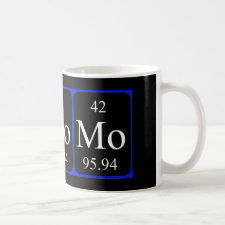
Authors: Rajabi Khorrami A, Narouenezhad E
Article Title: Synthesis of molecularly imprinted monolithic fibers for solid-phase microextraction of acetaldehyde from head-space of beverages stored in PET bottles.
Publication date: 2011
Journal: Talanta
Volume: 86
Issue: (1)
Page numbers: 58-63.
DOI: 10.1016/j.talanta.2011.08.002
Alternative URL: http://www.sciencedirect.com/science/article/pii/S0039914011007028
Abstract: Molecularly imprinted monolithic fibers were synthesized and evaluated for solid-phase microextraction (SPME) of acetaldehyde from head-space of beverages stored in poly(ethylene terephthalate) (PET) bottles. The fibers were prepared by co-polymerization of methacrylic acid and ethylene glycole diethacrylate as functional monomer and cross-linker, respectively. Acetaldehyde was used as template molecule during polymerization process, in order to leave specific cavities after leaching off from the co-polymer. Narrow bore (i.d. 100 μm) glass capillaries as molds were filled with polymerization mixture containing cross linker, functional monomer, template molecule, initiator and porogen solvent. This mixture is then polymerized to form a continuous porous monolith that conforms to the shape of the mold. The resulting monolithic fibers were employed by a micro-syringe to extract acetaldehyde from head-space of sample solutions. Gas chromatography/mass spectrometry (GC/MS) was used to analyze adsorbed acetaldehyde to the fibers. Parameters influencing adsorption of acetaldehyde from head-space of standard solutions to the fiber and subsequently desorption in the GC chamber were optimized. The limit of detection (LOD) and the limit of quantification (LOQ) were 0.01 and 0.03 μg mL-1, respectively. The intra-day and inter-day precisions of the peak areas for five replicates were 8 and 15%, respectively
Template and target information: acetaldehyde
Author keywords: molecularly imprinted, Monolithic fiber, Acetaldehyde, Poly(ethylene terephthalate), Beverage, solid-phase microextraction



Join the Society for Molecular Imprinting

New items RSS feed
Sign-up for e-mail updates:
Choose between receiving an occasional newsletter or more frequent e-mail alerts.
Click here to go to the sign-up page.
Is your name elemental or peptidic? Enter your name and find out by clicking either of the buttons below!
Other products you may like:
 MIPdatabase
MIPdatabase









